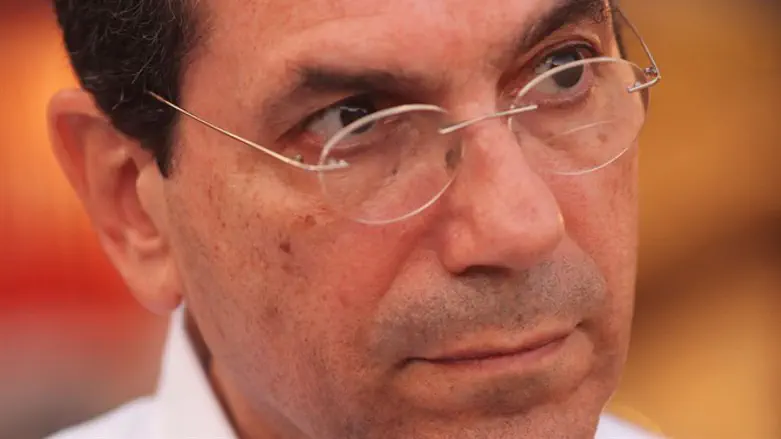
The government has spent months assuring Israeli citizens of the efficacy of the Pfizer-BioNTech coronavirus vaccine that the majority of the population has already received, promising – based on seemingly convincing data – that although the vaccine does not prevent contagion, it does substantially reduce the likelihood of becoming seriously ill if a person contracts Covid-19.
On Wednesday, Professor Gabi Barbash, former director-general of the Health Ministry, contradicted this narrative, telling Channel 12 News that, “No one really knows how effective the vaccine is, not even for preventing serious illness.”
Barbash urged the government to take immediate steps to curtail the spread of the virus, “before it is too late.”
“We need to mandate face masks again,” he said, “not just in enclosed spaces but also outdoors.” He also stressed the importance of imposing stricter checks on arrivals at Ben Gurion International Airport, and suggested imposing severe penalties for those found to have forged vaccination or immunity certificates.
“We should also be requiring all those who have come into contact with confirmed cases to enter quarantine,” Barbash added, “even if they are fully vaccinated.” After all, he pointed out, half of those currently in serious condition in the country’s hospitals have received both vaccine doses.
The number of Israelis in serious condition is particularly important to monitor for a number of reasons, and fluctuations in that number form the basis for Health Ministry decisions on lockdown measures (i.e. not the number of cases in total).
On Wednesday, the Health Ministry released updated figures showing that there are now 46 seriously ill patients in the country’s hospitals. However, an investigation by the Yediot Aharonot newspaper cast doubt on the accuracy of the Ministry’s data. Checking the government’s figures against those provided by the hospitals themselves, Yediot Aharonot identified large discrepancies which led them to the conclusion that the total number of seriously ill patients currently stands at just 27 people.
In Barzilai Medical Center in Ashkelon, for instance, according to government statistics there is one person in serious condition. However, an inquiry posed to hospital officials revealed that although there is one patient hospitalized with coronavirus there, he is not in serious condition. In Hadassah Ein Kerem Medical Center, according to the government, there is one patient in serious condition; according to the hospital itself, there are none. In Sheba Medical Center in Tel Hashomer, the government claims there are three patients in serious condition; the hospital itself says there is just one.
Speaking to Channel 12 News on Wednesday, Prof. Nachman Ash, the government’s coronavirus czar, confirmed that the criteria for determining the level of illness have not been altered since last year.
“We make assessments based on the respiratory function of the patient, as well as his general condition,” he said. “If a patient is experiencing respiratory distress – breathing over 30 times per minute – or if the amount of oxygen in the blood drops to under 93% saturation, the patient is considered to be seriously ill. Similarly, any patient who is on assisted breathing or who experiences damage to the internal organs or a drop in blood pressure will be considered in serious condition.”
Responding to the allegations of discrepancies in the data, the Health Ministry noted that it receives data from the country’s hospitals via private companies, and that it will be investigating alleged discrepancies.
